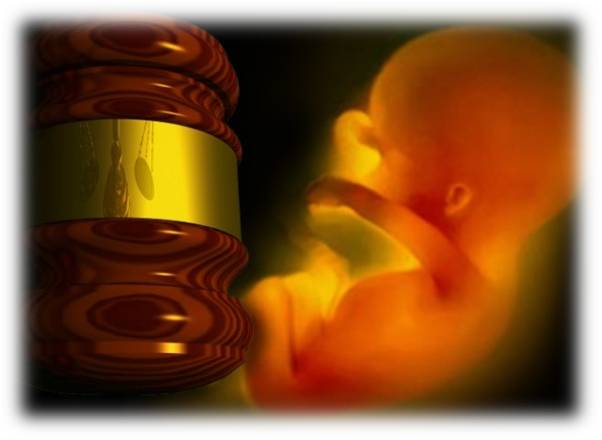The Supreme Court has declined to hear a case from Rhode Island about whether unborn babies have a right to life.
For almost 50 years since Roe, pro-life groups have made the case that unborn children have a right to life under the 14th Amendment, with the hope that the Supreme Court would someday recognize that right.
This is the first major case following the Dobbs decision overturning Roe v. Wade that the nation’s highest court could have considered. Forbes has more on the case the SCOTUS decision to not take it up this term:
The Supreme Court said Tuesday it will not take up Jane Doe et al. v. McKee, a case brought by two parents on behalf of their unborn children and the organization Catholics for Life against Rhode Island Gov. Daniel McKee (D) and the state’s government.
The lawsuit challenged Rhode Island’s law that upholds abortion rights and argues that fetuses and embryos, regardless of their gestational age, are entitled to due process and equal protection rights under the Constitution.
The anti-abortion challengers asked the court to take up the case in light of its June ruling in Dobbs v. Jackson Women’s Health Organization, which overturned the federal right to an abortion, noting the 6-3 conservative court avoided answering in that decision whether fetuses have any rights themselves.
REACH PRO-LIFE PEOPLE WORLDWIDE! Advertise with LifeNews to reach hundreds of thousands of pro-life readers every week. Contact us today.
Petitioners brought the case after it was dismissed in a lower state court and the Rhode Island Supreme Court affirmed that ruling, finding the plaintiffs did not have standing to bring the case because fetuses do not have due process rights under the Constitution.
“As s this Court held in Dobbs, abortion laws are different from all others. Do unborn human beings, at any gestational age, have any rights under the United States Constitution?” the challengers asked in their petition to the Supreme Court. “Or, has Dobbs relegated all unborn human beings to the status of persona non grata in the eyes of the United States Constitution – below corporations and other fictitious entities?”
The Fourteenth Amendment says that no state shall deprive any person of life, liberty, or property without due process of law, nor deny to any person within its jurisdiction the equal protection of the laws. Pro-Life advocates have long argued that, because an unborn baby is a human being starting at conception, that the amendment should include their right to life.
Professor John Finnis at the University of Notre Dame Law School and Professor Robert P. George at Princeton University filed an amicus brief in the Dobbs case presenting a detailed history of American law that, according to their research, recognized unborn babies as persons under the Fourteenth Amendment up until Roe v. Wade in 1973.
In their brief, Finnis and George refuted the idea that the U.S. Constitution is “silent” on the matter of whether an unborn baby is a legal “person” under the Fourteenth Amendment.
“Roe v. Wade conceded that if … ‘the fetus is a “person” within the language and meaning of the Fourteenth Amendment,’ the case for a constitutional right to abortion ‘collapses,’” they began.
The professors cited 19th century laws and court cases, statements from prominent medical groups and experts, and other evidence to show that an unborn baby was considered “a person” from conception under the law and “’to all intents and purposes a child, as much as if born.’”
According to Finnis, unborn children are properly understood as “persons” under the 14th Amendment’s equal protection clause, and state-level homicide laws therefore cannot discriminate by protecting live people but not unborn people.
The upshot under this logic is that overturning Roe and its 1992 successor Planned Parenthood v. Casey would not merely return abortion regulation to the ambits of the various states, as earlier conservative legal titans such as the late Justice Antonin Scalia long argued. Rather, it would mandate banning abortions nationwide.
Senator Ted Cruz has said the 14th Amendment and the goal of the founders was to protect life.
“I think the first obligation of everyone in public office is to protect life. Life is foundational. In fact, as you look at the Declaration, that ordering of unalienable rights, life, liberty, and the pursuit of happiness, I think it’s a very deliberate ordering. Without life there is no liberty, and without liberty there is no pursuit of happiness. That each builds upon the other, and I very much agree with the Pope’s longstanding, and prior popes before him, longstanding call to protect every human life from the moment of conception to the moment of natural death,” he’s said.








